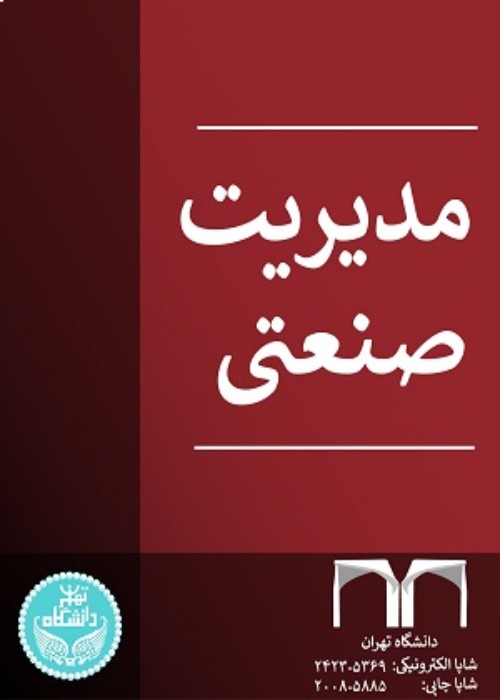Providing a Multi-objective Mathematical Model for Optimizing the Equipment and Allocation of Financial Resources of the Banking System
Author(s):
Article Type:
Research/Original Article (دارای رتبه معتبر)
Abstract:
Objective
As economic enterprises that seek to earn a profit, banks collect and accept financial resources from depositors in the form of financial intermediaries. They allocate the resources to economic activities (investors) by providing various facilities. Therefore, banks play a very sensitive and important role in the economic system of a country and have a significant effect in regulating the economic relationships in society. Banks need to pay attention to the accurate allocation of facilities and resources. Accordingly, in today's financial landscape, effective asset and debt management has become a crucial component for the success of banks and other financial institutions. It is now essential to optimize the provision and allocation of financial resources in the banking system to reduce the costs of collecting financial resources and increase income via the distribution of financial resources in the form of various facilities. Introducing a multi-objective mathematical model and considering the limitations of the problem, this study seeks to present a mathematical model for equipping and optimal allocation of financial resources.Methods
After reviewing the literature and previous studies conducted in the field of the research topic, using the opinions of banking experts, the researchers defined the objectives of the study as maximizing the income from the allocation of resources and minimizing the costs from the collection of resources. The first objective was defined to maximize the income from the payment of facilities (allocation of financial resources) and the second objective was defined to minimize the costs of the collection of financial resources (equipment of financial resources). The objectives were determined according to the rules and regulations of the Iran Central Bank as well as the financial regulations governing the business of the Iranian banking system. After defining and coding the model, the problem was solved using meta-heuristic algorithms. Finally, the effectiveness of the algorithms in providing the desired answer was assessed. Due to the NP-HARD nature of the problem, three meta-heuristic algorithms NSGAII, MOPSO, and CUCKOO were chosen to solve the problem. Due to the high efficiency of the MATLAB program, this software was used to perform the coding and calculations.Results
The results of the research indicated that the credit and operational risks of the bank will be reduced in case the banking system's resources are equipped and allocated scientifically. The achieved results from the evaluation of the algorithms confirmed the superiority of the mass particle swarm algorithm (MOPSO) over the other two algorithms. Long calculation time was found to be one of the disadvantages of genetic algorithms. Also, in the evaluation of various indices, the cuckoo algorithm did not demonstrate any significant advantage over the other two algorithms under scrutiny.Conclusion
The results showed that thanks to its optimal allocation of financial resources, the model presented by this study can significantly increase the profitability of banks.Keywords:
Language:
Persian
Published:
Journal of Industrial Management, Volume:15 Issue: 49, 2023
Pages:
272 to 298
magiran.com/p2634582
دانلود و مطالعه متن این مقاله با یکی از روشهای زیر امکان پذیر است:
اشتراک شخصی
با عضویت و پرداخت آنلاین حق اشتراک یکساله به مبلغ 1,390,000ريال میتوانید 70 عنوان مطلب دانلود کنید!
اشتراک سازمانی
به کتابخانه دانشگاه یا محل کار خود پیشنهاد کنید تا اشتراک سازمانی این پایگاه را برای دسترسی نامحدود همه کاربران به متن مطالب تهیه نمایند!
توجه!
- حق عضویت دریافتی صرف حمایت از نشریات عضو و نگهداری، تکمیل و توسعه مگیران میشود.
- پرداخت حق اشتراک و دانلود مقالات اجازه بازنشر آن در سایر رسانههای چاپی و دیجیتال را به کاربر نمیدهد.
In order to view content subscription is required
Personal subscription
Subscribe magiran.com for 70 € euros via PayPal and download 70 articles during a year.
Organization subscription
Please contact us to subscribe your university or library for unlimited access!



